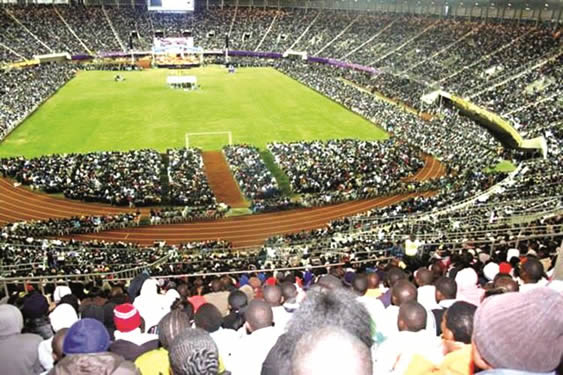
The Sunday Mail

Africa Moyo —
FOOTBALL is the most popular sport in Africa, and other parts of the world such as South America.
A scholar of Zambian football Hikabwa Chipande says in the 19th century, Europe exported not only its imperial politics, good ideas and social norms, but also sport to the rest of the world.
In Africa, the first documented game of football was played in South Africa in 1862, with the British military, traders and missionaries taking part in the game.
Football, which was also part of Europeans’ “civilising mission” in Africa, is popularly known as the world’s most beautiful game. This followed the title of legendary Brazilian footballer, Pele’s autobiography, “My Life and the Beautiful Game”.
However, football has become “ugly” and is mired in several controversies, including the exploitation of African players by European clubs. More importantly, the nexus between football and religion has become worrisome in particular, the use of juju.
A cultural anthropologist, Arnold Pannenborg says Africans are deeply religious, with most of them being Christians or Muslims and it is common to see players praying or performing some ritual before a match.
Juju or muthi is widely used, not just in professional football, but also by primary and secondary schools in Africa. Primary school boys normally sprinkle urine or a sort of oil near the goalpost with their opponents normally countering by throwing a coin inside the goalpost.
In a research document titled, “How to win a soccer match in Cameroon”, Pannenborg (2008) spoke with a jujuman who said children learn about juju from a young age as they see players from big teams doing the same on the pitch.
There are different forms of juju in football. Some teams plant a concoction containing the head of a cat, a needle and a piece of paper with the names of the opponent team’s players, mainly on the pitch or near the entrance to the stadium.
This has seen some teams refusing to enter stadia through designated entry points. A case in point was when Highlanders played Dynamos at Barbourfields Stadium in September this year.
When Dynamos players and officials alighted from the team bus, they declined to enter the pitch through the away team’s dressing room, and chose to use a gate on the wing stand close to the Mpilo End.
The belief was that a spell had been cast in the visiting team’s dressing room to make them underperform. Using an alternative route would make the juju useless.
However, DeMbare went on to lose the match 1-2 despite taking the lead in the second half. In 2011, Misheck Chidzambwa was also accused of making regular visits to his team’s dressing room towards the end of matches to mix concoctions that would enable his team to score goals.
Chidzambwa dismissed the allegations as just a myth. In “Witchcraft, Oracles, and Magic among the Azande”, Evans-Pritchard argues that if misfortune befalls a South Sudanese, it may be due to witchcraft.
Most soccer players across the African continent believe that some injuries that take long to heal or fail to heal at all, are caused by juju. In Zimbabwe, one of the brightest footballing prospects, Samson Choruwa, who was part of the famous “Kidznet” team assembled by Moses Chunga at Dynamos, was injured in 2003.
Choruwa underwent a knee operation in January 2014 but the dribbling wizard has never played competitive game since then, leaving some alleging that he was bewitched. Pannenborg (2008) says witchcraft can be used by soccer players to bewitch their teammates so that they can get more game time.
But Evans-Pritchard (1976) believes that witches perform no rite, utter no spell, and possess no medicines, which makes witchcraft “a psychic act”. Those that believe in Christianity pray before, during and after soccer matches.
Dynamos players kneel on the goal line and say a prayer before every game. Prophetic Healing and Deliverance leader Prophet Walter Magaya prayed for the national women’s soccer team, the Mighty Warriors, and all team members got a bottle of anointing oil ahead of their All-Africa Games qualifying match against Ghana at Rufaro.
Seeking to overturn a 2-1 defeat, the Mighty Warriors could only draw 2-all with Ghana and crashed out of the tournament. Similarly, Yadah FC coach Kuda Masaraure told our sister paper, H-Metro last week that the team had won the Eastern Region Division championship because of “spiritual guidance” from Prophet Magaya, who owns the team.
Panneborg says it is difficult to conclude if juju works or not but posits that some witchdoctors see themselves as psychologists who bring the team together and creates confidence amongst players.



